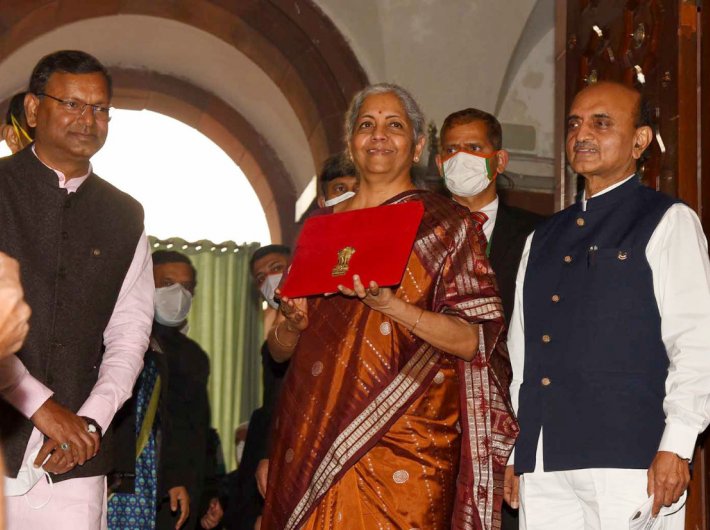Indians hold relatively more traditional gender views, rank around the global median when it comes to supporting equal rights
The PEW Research Center released a report on the Indian attitudes towards gender roles, at home and at society at large. The findings are based on a survey of around 30,000 people conducted in 2019-2020 or pre-COVID-19 period. [Read the report here: https://www.pewforum.org/2022/03/02/how-indians-view-gender-roles-in-families-and-society/] Nearly 8 in 10 Indians said that it is very important for women to have the same rights as men, and at the same time 80% of Indian agree with the statement that “when there are few jobs, men should have more rights to a job than women”. Similarly, 9 out of 10 Indians also completely or mostly agreed that “a wife must always obey her husband”. What is more interesting is that the difference of opinion of this statement between men and women was modest. In other words, Indian women and men share equally repressive gender views. These findings give a segue into the wide gender attitude problem in the country and we further elucidate on this.
Traditional gender roles
A majority (54%) of Indians say that the task of providing for the family should rest with both men and women, while 43% see it as solely the obligation of men. Likewise, 62% of adults said that while both genders should be responsible for taking care of children, one-third believe that it is the sole responsibility of women. Hence, a substantial fraction of the population still believes in traditional gender roles.
Determining the gender of children
Indians firmly believe that it is important to have at least one son (94%) and one daughter (90%). This statistic is deceiving as 4 in 10 Indians also say that is either “completely acceptable” or “somewhat acceptable” to “get a checkup using modern methods to balance the number of girls and boys in the family”. This is a euphemism for sex-selective abortion. Since Indians have traditionally placed a higher worth on sons than daughters, the acceptability for determining the gender of the child to balance the family is unsurprising, although detestable.
Heterogeneity across religion
63% of Indians say that sons should be responsible for the parents’ burial ritual. This tradition stems from the Hindu religion’s belief that one’s soul gains peace and freedom in the afterlife if the ritual is performed by the son. Hence, as expected this belief varies across religions. 74% Muslims, 67% Jains and 63% Hindus believe in the above-mentioned statement, whereas only 29% Sikhs, 44% Christians and 46% Buddhists have these expectations from the son. These religions believe that both the son and daughter are responsible for the parents’ last rites. Sikhs are also least likely to hold traditional gender views relative to other religions.
Politics
A small comforting finding is that 55% of Indians think that both women and men make equally good leaders. This finding is consistent with the general political trend in the country as India had the second female prime minister in the world, Indira Gandhi. Other leaders like Jayalalitha, Mamata Banerjee and Sushma Swaraj have been appreciated for their political leadership. Hence, even though Indians are more willing to accept women leaders in the political sphere, they lack the same acceptance in traditional gender roles at home.
Comparison across the world
When we compare these beliefs with the rest of the world, Indians hold relatively more traditional gender views. Indians rank around the global median when it comes to supporting equal rights for women. But of all the 61 countries, India has the second-highest share of adults agreeing to the notion that men have a greater right to a job than women (when jobs are scarce). Further, out of the 34 countries, India has the third-highest fraction of adults believing that marriage is more satisfying when a man provides for the family and the wife takes care of the household’s responsibilities including child-rearing.
India lacks the recognition of egalitarian gender roles inside the home. While this issue is particularly troublesome in responses like men’s right to jobs over women, or the widespread notion that women should obey men, it is also worthwhile for us to see when it comes to politics Indians are more accepting of women leaders. It is possible to bring about a lasting change in gender attitudes by banking on these positive responses.
In the short term, campaigns for spreading awareness on gender equality could be initiated by women in power, like political leaders and IAS officers. These women will serve as role models to the young girls and will teach them to aspire to such positions in society.
In the medium run, the government should undertake steps that encourage the education of girl child. Drawing on experiences of programmes like ‘Beti Bachao, Beti Padhao’, future initiatives should contain a mix of financial and behavioural incentives. Drama or essay-writing competitions at the school or college level that exhibit the struggles faced by girls and women, and how they overcame it, will help the audience/readers empathise and understand these issues.
In the long term, behaviour change will need to emanate from one’s respective homes. The change can be initiated from parents who should deliberately take a pause and practice gender-swapping roles, i.e., introducing male children in the kitchen and for general household help. Also females can be taught male-dominated practical skills like learning to drive and repair vehicles, repairing appliances at home, etc. This will enable the children to play a comprehensive responsibility in the family in the long run.
Designing a lasting change in gender attitudes requires meticulous planning and implementation and the PEW Research Center survey is a wake-up call to commence that change.
Payal Seth is a PhD Scholar and Palakh Jain is an associate professor at Bennett University.
